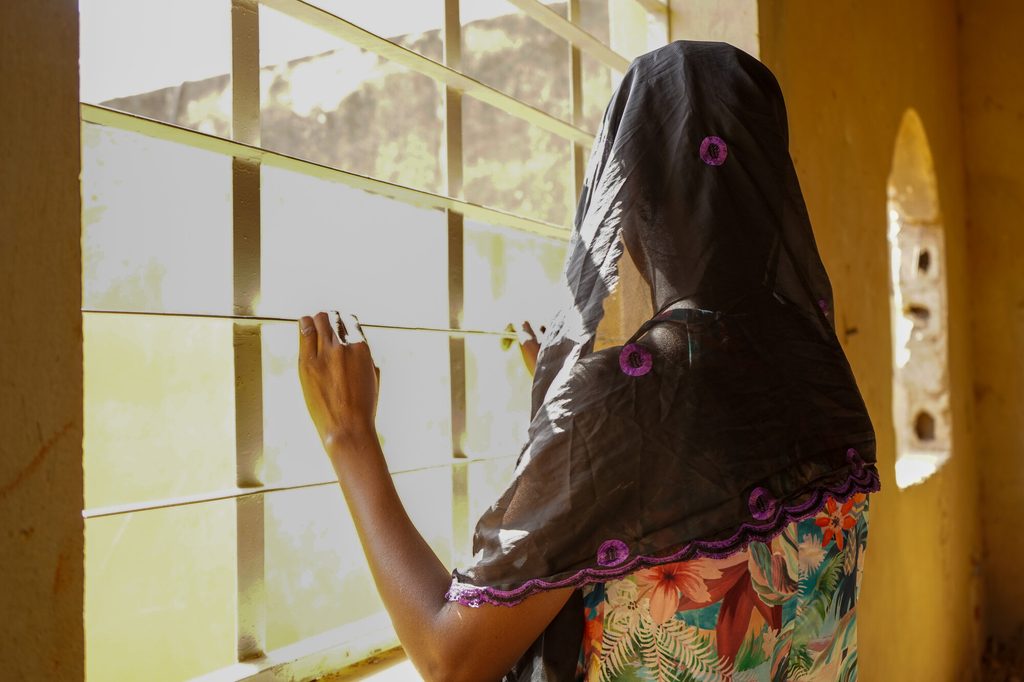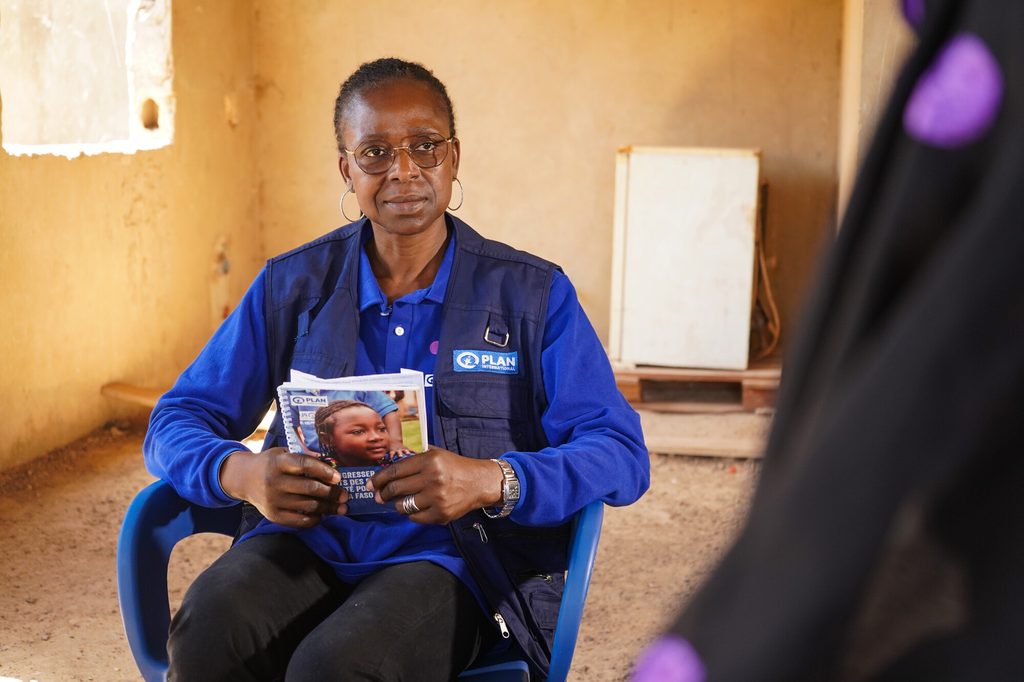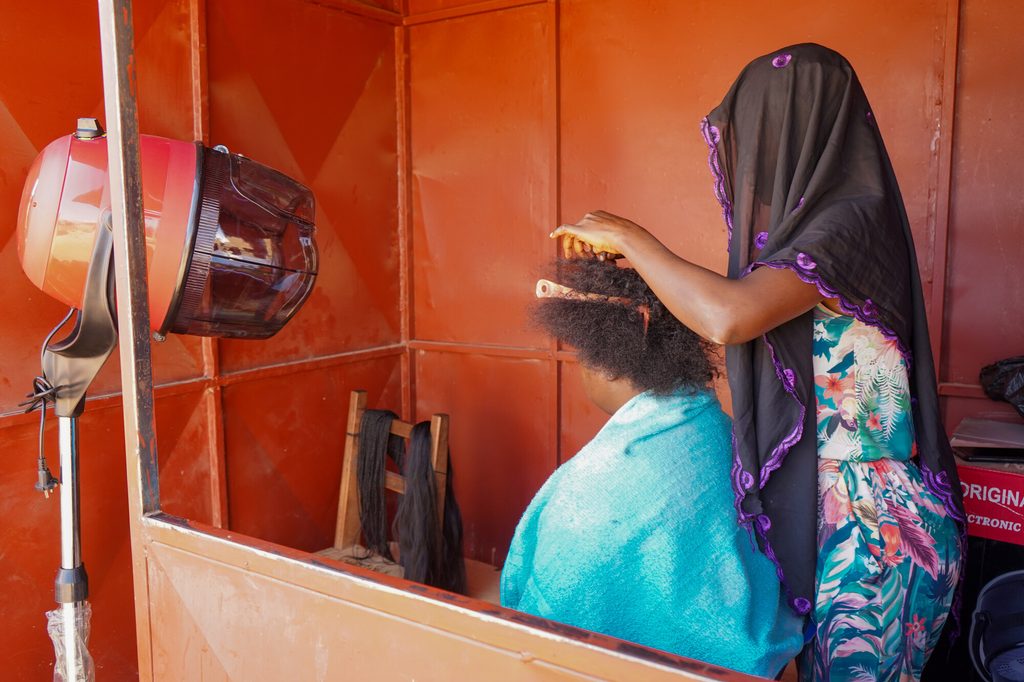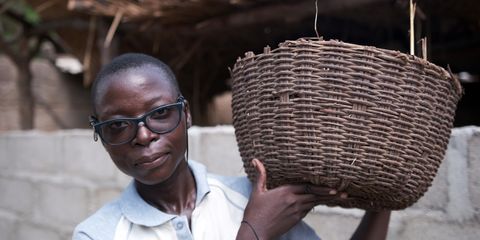Gender-based violence survivor Saoudata is building a new life for herself as a successful hairdresser. Having survived forced marriage, she is now ready to tell her story.

From a region of Burkina Faso hit hard by conflict, Saoudata* refused to give up at each stage of her difficult journey in life. “When I was 4, I was given to a foster family. I realised straight away that things were not going to work out the way I wanted them to. They forced me to become a street vendor,” Saoudata shares in a loud voice that contrasts with her slender appearance.
Saoudata was told that the reason she was sent away from her biological family was that she cried a lot as a child, so her family decided that she was cursed and she was taken away from her mother. With her adoptive family, Saoudata did not have the chance to go to school and when she was 18, her foster mother decided to force her to marry her son.
“I didn’t kill myself, but maybe someone else would have done it in my place. Let no other girl go through what I went through.”
Saoudata, survivor of forced marriage
Often deprived of food, Saoudata suffered multiple beatings at the hands of her abusive husband. “He used to lock me in the room to have sex. He would get his way after beating me.” Saoudata became pregnant as a result of one of the attacks, but even then the violence continued. “He kept beating me, I had a miscarriage… So I decided to run away.”
When Saoudata fled, she had only a few coins in her pocket which she used to catch a bus to a big city. There she took steps to find help. “I asked about shelters for abused girls. I was welcomed by nuns,” she explains.
A survivor in the recovery process
In a place of safety, Saoudata started the process of recovery and was able to take part in educational activities for the first time in her life. “I was lucky enough to attend classes in the evenings. Today, I can write my name,” she says proudly.
Looking for a way to become financially independent, Saoudata started to make plans. “I noticed that in Burkina Faso, all women want to be beautiful so I decided to become a hairdresser.”

Joining a vocational training course run by Plan International as part of a project to support young women in crisis in the central Sahel, Saoudata, along with 68 other young people living in difficult circumstances, had the opportunity to learn valuable entrepreneurship and life skills.
Following the training, she also received hairdressing equipment to help her set up her own business. “After this training, I knew that my salon must be a clean place in a busy neighbourhood, and that I must do innovative hairstyles, so that everyone asks my clients where they got their hair done and they point to my salon.”
“With all that I have been through, I want to start by being financially independent so that I will not have to live off my husband. “
Saoudata, survivor of forced marriage
Living in a city in the Centre-North region hosting thousands of people displaced by the conflict, Saoudata has been able to make friends through the project activities. “Some have fled because of the attacks. In my case, it was a forced marriage that made me flee. I tell myself that I have suffered but at least I am not alone. These displaced people have been a source of inspiration to continue going.”
After 3 years living in the shelter, Saoudata moved in with a relative who supports her. She has opened a small hairdressing salon and is becoming known for her hair braiding expertise.
Having survived her traumatic childhood and forced marriage, Saoudata says she is now ready to tell her story. “People are not all fortunate in life. I didn’t kill myself, but maybe someone else would have done it in my place.”
Early and forced marriages on the rise
Saoudata’s sisters were also forced into unwanted marriages, something she now feels very strongly against. “If I could tell my parents about the violence I survived, I would ask them to put an end to this practice. Let no other girl go through what I went through.”
Now looking to the future, Saoudata says she would like to have more training in business management, saving skills and finance. “It would help me move forward. Getting married and starting a family is still a dream for me. But with all that I have been through, I want to start by being financially independent so that I will not have to live off my husband.”

According to an OECD study, 37% of Burkinabe women have experienced domestic violence in their lifetime. Some 95% of women say they have faced emotional violence, 41% have experienced physical violence and 19% have experienced sexual violence. Like Saoudata, most survivors are subject to multiple forms of violence.
Since the start of the crisis in Burkina Faso, early and forced marriages are on the rise. At the beginning of 2023, almost 20% of women in crisis-affected areas said that early and forced marriage was the first gender-based violence they experienced according to the Project 21.
Burkina Faso’s Centre-North region is one of the areas covered by the project “Youth and Adolescent Girls in Crisis at the centre in the Central Sahel Response” implemented by Plan International and its partners in Burkina Faso, Mali and Niger, and funded by PlanBørnefonden. This project supports young people, especially girls and young women, working with them through their own associations, by increasing economic and social assets, improving social cohesion, adaptation to climate change, and strengthening gender transformation.
*Name has been changed to protect identity

